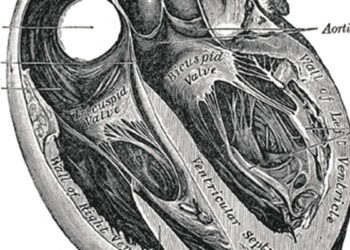Post-operative hospital transfers more likely at Critical Access Hospitals
Image: PD
1. Surgical admissions at Critical Access Hospitals (CAH) resulted in transfers more frequently than at non-CAH hospitals.
2. Patients with Medicare as primary insurance and those at rural hospitals were less likely to use post-acute care for hip fracture repair and hip replacement when undergoing surgery at CAHs.
Evidence Rating Level: 2 (Good)
Study Rundown: Critical Access Hospital designation was established in 1997 to prevent closure of struggling rural hospitals. Rather than paying these hospitals prospectively, Medicare began reimbursing them for whatever costs of care they incur while serving Medicare beneficiaries. This change resulted in a rapid increase in the number of CAHs, which now represent 25% of US acute care hospitals. This study aimed to assess surgical care quality and cost by analyzing CAH transfer and post-acute care rates. The authors found that surgical patients at CAH are transferred more often than those at a non-CAH and that post-acute care use rates are lower in a subset of CAH patients. Hospital transfer and post-acute care use rates were assessed for six procedures that are commonly performed at CAH. Such transfers may be driven by a lack of resources at CAHs to care for complex post-surgical patients. However, CAHs are also required to keep their average inpatient length of stay under 96 hours, which may influence transfer decisions. This study analyzed a formidable number of hospitals and admission instances, but only 2% of the admissions were at CAHs. There also may be significant differences in the CAH and non-CAH patients, providers and settings that this study was not able to control for due to dataset limitations.
Click to read the study in JAMA Surgery
Relevant Reading: Quality of Care and Patient Outcomes in Critical Access Rural Hospitals
In-Depth [retrospective cohort]: This study analyzed Nationwide Inpatient Sample data from 4895 acute care hospitals, of which 26.2% were CAHs. CAH designation was extracted for the American Hospital Association survey. Authors focused on six common surgical procedures, including hip and knee replacement, hip fracture repair, colorectal cancer resection, cholecystectomy and TURP, conducted between 2005 and 2009. The sample consisted of 1,124,036 surgical admissions, of which only 2% were at CAHs. Patients admitted to CAHs for surgery were more likely to be white, older, lower-income and using Medicare as their primary insurers, and had less comorbidities than non-CAH patients. The multivariable-adjusted proportion of CAH patients that concluded with a transfer to a different hospital was higher than at non-CAH patients for hip replacement (odds ratio 1.9, 95% CI 1.01-3.57), colorectal cancer resection (OR 3.37, 95% CI 2.23-5.09) and cholecystectomy (OR 1.67, 95% CI 1.27-2.19). Patients who used Medicare as their primary insurer were more likely to be transferred after all the analyzed surgeries except knee replacement. In the unadjusted analysis, it was noted that CAH patients were less likely to be discharged with post-acute care for all procedures with the exception of TURP. However, this finding did not hold after multivariate adjustment. In subset analysis, Medicare beneficiaries and patients treated in rural hospitals used post-acute care less for hip fracture repair and hip replacement conducted at CAH.
More from this author: Symptomatic relief possible with surgery for metastatic bowel obstruction, Preperitoneal mesh placement a valid option for ventral hernia repair, Surgeons may be unaware of own level of burnout, Home Calculator may predict likelihood of home discharge after surgery, Apgar score for surgery predicts mortality in veterans
©2012-2014 2minutemedicine.com. All rights reserved. No works may be reproduced without expressed written consent from 2minutemedicine.com. Disclaimer: We present factual information directly from peer reviewed medical journals. No post should be construed as medical advice and is not intended as such by the authors, editors, staff or by 2minutemedicine.com. PLEASE SEE A HEALTHCARE PROVIDER IN YOUR AREA IF YOU SEEK MEDICAL ADVICE OF ANY SORT.







